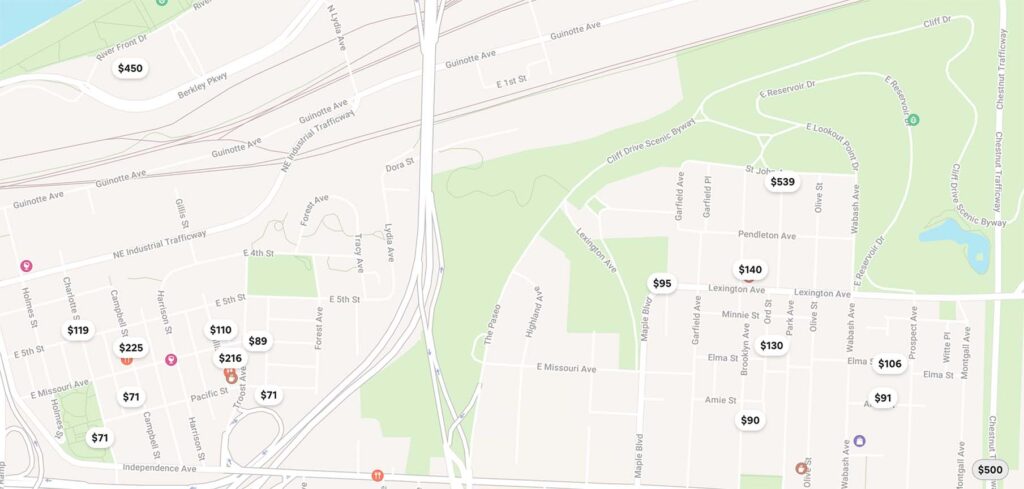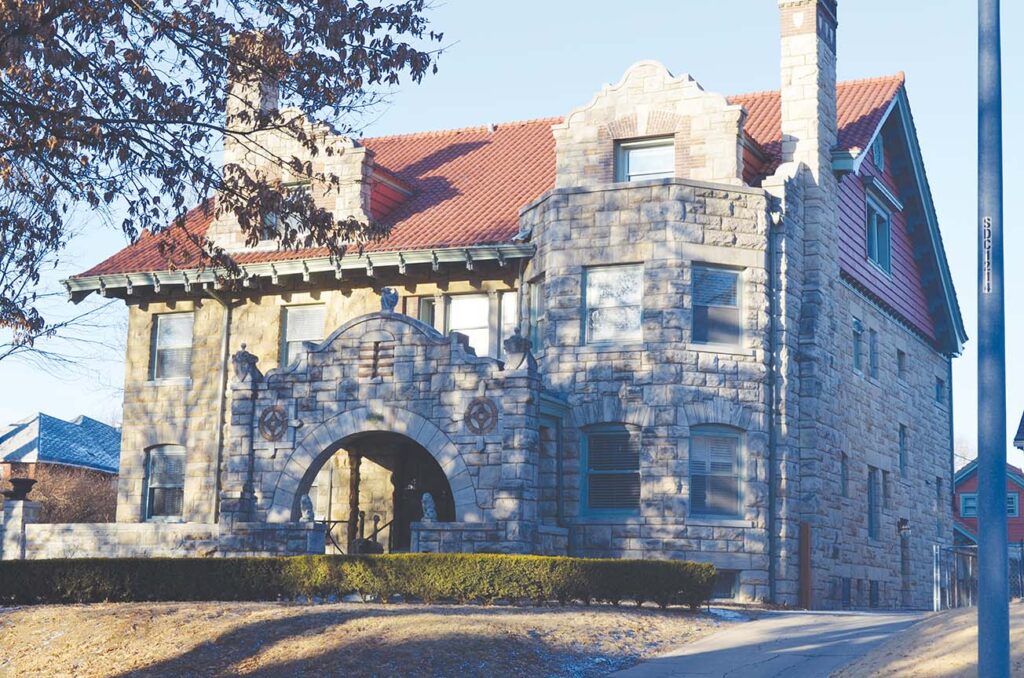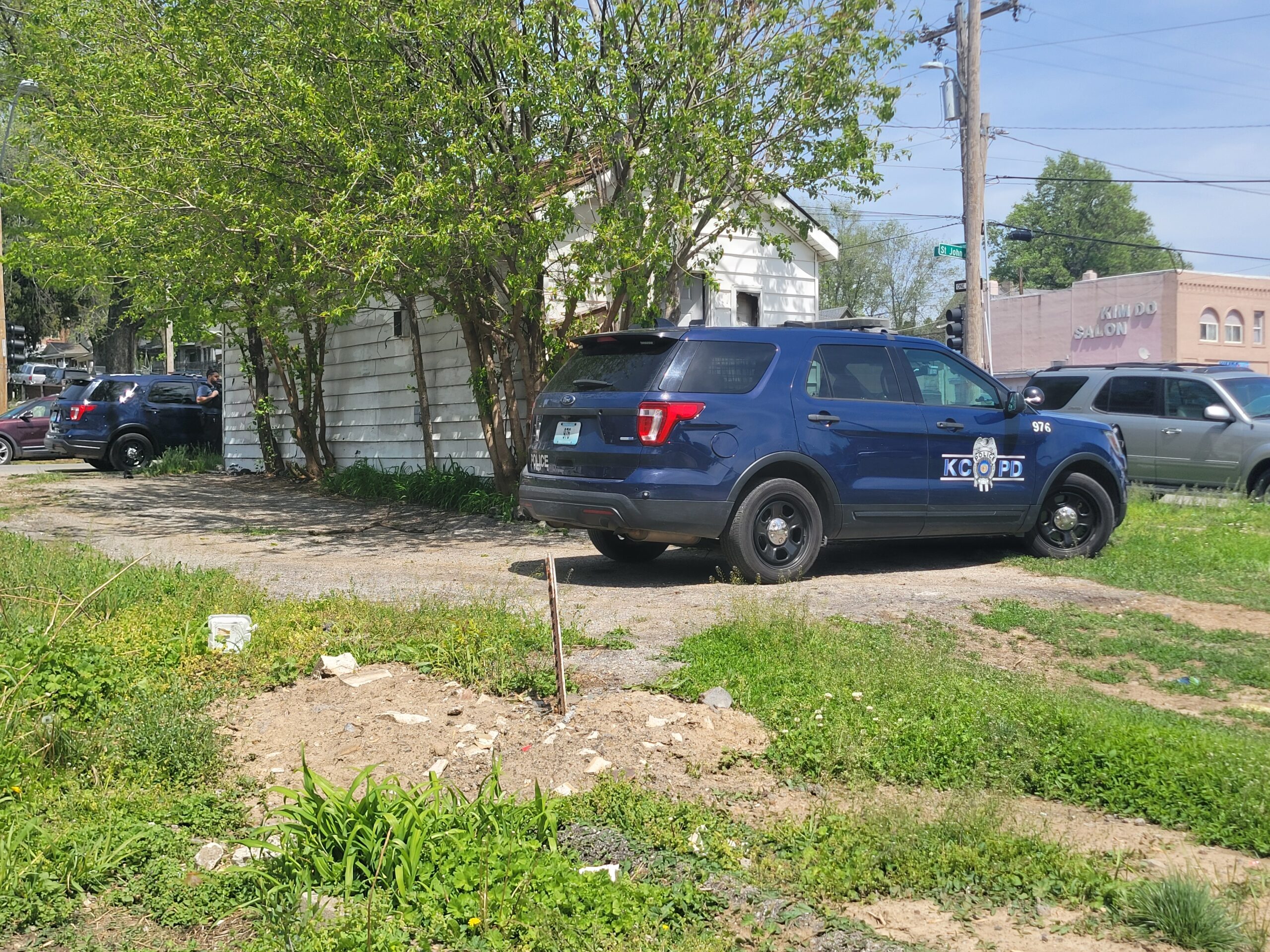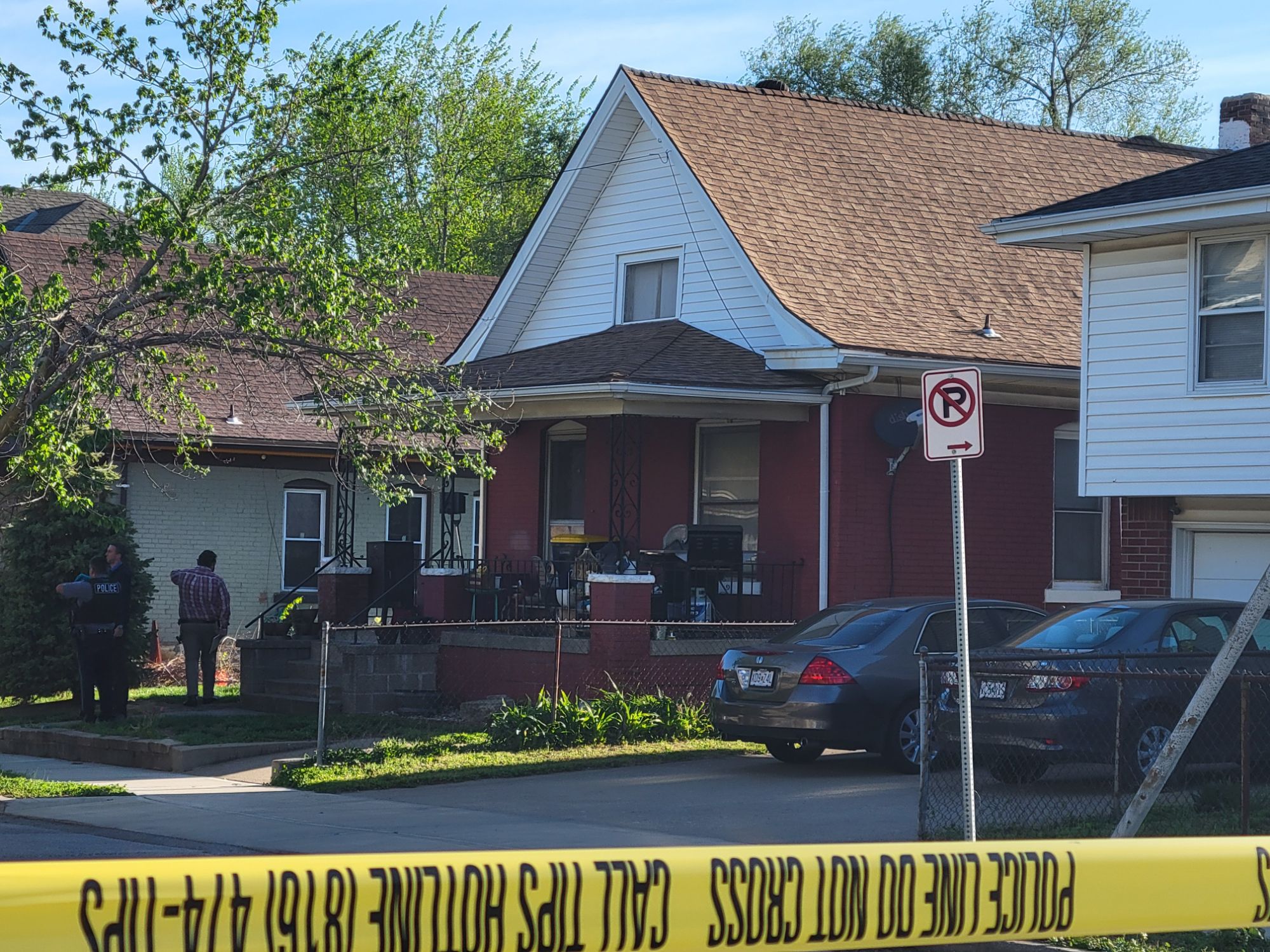
Abby Hoover
Managing Editor
Online short-term rental marketplaces like VRBO, founded in 1995, and Airbnb, founded in 2008, grew in popularity as convenient, affordable lodging alternatives, allowing visitors to experience neighborhoods like locals. But for years, Northeast Kansas City residents have been increasingly concerned with unregulated short-term rentals overtaking their urban neighborhoods.
In November, the Kansas City Neighborhood Advisory Council (KCNAC) Board of Directors recommended a moratorium be placed on new applications for all Type 2, meaning not owner-occupied, short-term rentals (STR) and the special use permit process for any STR application to provide time for a constructive conversation on updating regulations to protect Kansas City neighborhoods.
The recommendation moratorium would prioritize and increase capacity for enforcement activity to shut down unregistered STRs, data analysis of the local housing and STR markets, a review of audit recommendations, and benchmark research on similar efforts in other jurisdictions.
The formal recommendation, written to Mayor Quinton Lucas, City Manager Brian Platt and Council Members, was sent on November 6 by the six-member board. The KCNAC board is made up of co-chairs Tiffany Moore and Jennie Walters, Third District’s Rodney Sampson, Fourth District’s Kate Barsotti, Fifth District’s Jessie Jefferson, and at-large member Marquita Brockman-Taylor.
“The clamor over short-term rentals has been building for some time with industry growth shadowed by reports of nightmarish stays, property damage, and housing market disruption,” the letter reads. “Cities across the country have been updating legislation, business practices, and zoning and building codes in an effort to manage an expansive marketplace that is projected to exceed 1.2 million domestic listings in 2022 and reach nearly 1.4 million listings in 2023.”
The council’s board said that mobile, app-based convenience and opportunities for authentic experiences within traditional neighborhoods were initially viewed by many as extremely entrepreneurial. Homeowners could share their homes and communities to support local tourism, boost household income, and provide alternatives to hotel environments perceived as isolated or homogeneous.
However, as the industry quickly matured, a far more commercial influence emerged that presently includes large-scale real estate holdings with property management companies; hotelier participation, such as the Marriott Homes and Villas brand; and new platforms, such as Sonder, which manages apartment units like hotel rooms, the letter reads.
“The combination of explosive market growth and the presence of bad actors has outpaced legislative boundaries and the capacity of local jurisdictions, negatively impacting neighborhood quality of life, burdening law enforcement agencies, and disrupting housing markets facing crisis-level availability and affordability,” the board wrote.
Kansas City is poised to begin a promising conversation on changes to current STR regulations after reports indicated an estimated 90% non-compliance rate and multiple incidents of nuisance noise and partying and illegal activities such as drug distribution, gun violence, and intimidation at non-owner-occupied residences, according to the letter.
KCNAC said the moratorium should include both seasonal and year-round uses, detached and semi-attached – formerly single-family and duplex – dwelling units, and multi-family buildings.

“The moratorium should remain in place until updated interim guidance and/or fully adopted changes to short-term rental permitting
and operating legislation are in place,” the board wrote. “Public engagement will be an important component of this effort, as well. Many neighborhoods already maintain records of STRs, incidents, and reports, and have assembled significant industry data. Leveraging community members with extensive knowledge of the STR industry and local market can accelerate the development of new regulations.”
KCNAC hosted a preliminary workshop on STRs on Saturday, Dec. 3, at the Northeast Kansas City Chamber of Commerce. They will host another workshop on Wed., Dec. 7. For more information on the recommendation and future meetings, contact KCNAC by email at kcmonac@gmail.com. They plan to provide recommendations to the City Council as it works to revise the STR ordinance.
Barsotti, also the Columbus Park Community Council president, said few hosts have complied with the current ordinance, resulting in loss of City revenue and neighborhood disruption. Her neighborhood’s council has been tracking the unregistered STRs and knows of nearly 25, a few of which have been the source of major disturbances in the neighborhood situated just northeast of downtown.
On November 29, the Kansas City Auditor’s Office released an audit focused on the impact short term rental activity has on the City’s convention and tourism taxes and fees. Missouri state statute defines a hotel and motel in Kansas City in a way that prevents the City from assessing and collecting the 7.5% Convention and Tourism Tax (C&T tax) on short term rentals.
“The definition of a hotel in state statute does not prevent the collection of the Hotel, Motel Occupancy Fee from short term rentals in Kansas City,” the Auditor’s report reads. “However, the section of the City Code for this fee uses the same limiting definition as the C&T tax, thus excluding short term rentals from paying this fee.”
The audit concluded the City would have collected an estimated $2.28 million in C&T taxes between July 2021 and August 2022, had the city been able to assess and collect this tax from short term rentals in Kansas City.
“We also estimated the City would have collected about $354,000 in Hotel, Motel Occupancy Fees over the same period,” according to the Auditor’s report. All hotels, motels, and tourist courts are required to collect and remit a “$1.50 fee per occupied room by a guest per day.”
The City adopted a $1.9 billion budget in March for 2022-23.
The audit notes the City’s ability to assess and collect the C&T tax on STRs is dependent upon the state legislature changing state law to be consistent with other Missouri cities collecting similar convention and tourism taxes. In contrast, the City Council, with voter approval, could establish an occupancy fee for STRs.
The audit recommends the Mayor and City Council continue their legislative priority to change the state statute that limits Kansas City’s ability to tax short term rentals like other businesses in the accommodation industry, and take steps to assess a Hotel, Motel Occupancy type fee on STRs.
A companion report evaluating compliance with STR permit requirements will be released in the coming weeks, according to the Auditor’s Office.
KCNAC recommends that if a neighborhood is facing challenges with short-term rentals, residents should contact their council members. The City is asking for feedback on STRs by December 15 by filling out a survey found at kcmo.gov/housing.
Update:
On December 8, the City Auditor’s Office recommended changes to short term rental permit enforcement. The Auditor’s notice is below:
The City Auditor’s Office released an audit focused on compliance with the City’s short term rental permit requirement. City Council passed an ordinance in 2018 regulating the operation of short term rental units in Kansas City. These regulations require hosts to follow steps to obtain a permit depending on the type of zoning and ownership of the unit. These regulations also include requirements for health and safety standards, prohibitions on certain activities in the unit, and an enforcement process.
The audit concluded that in August 2022, only 11% of the over 1,800 short term rental units in Kansas City had permits as required. Since the program began in 2018, only 7% of units obtained a permit. Because of this the city did not collect over $1 million in permit fees and renewals that help fund staff to process applications and enforce regulations. Without permits, the city does not have information about the owners of short term rentals and their location or the resources to fund program staff.
City code’s approach to permitting is ineffective. A violation occurs only once a guest stays at a short term rental unit. This regulatory approach requires a high degree of evidence to prove. Because most of the short term rental transactions occur on intermediary websites, hosts have little incentive to comply with city requirements. Other cities we reviewed prohibit either hosts or intermediaries from listing, booking, or collecting fees from unpermitted units. Additionally, the audit found that the City Planning and Development Department could better communicate with intermediaries, define what information intermediaries and hosts should retain, and come up with a process to obtain that information.
The audit makes recommendations aimed at creating a regulatory framework where all units must have a permit to list on platforms and give city staff the information and resources necessary to better enforce all short term rental regulations.
View the Full Report or Highlights online on the Recent Reports page.
The audit is scheduled to be presented at the Council Business Session at 2 p.m. on Thursday, December 8, 2022.
A companion report evaluating the impact short term rentals have on city tourism taxes and fees was released last week.
This audit was based in part on public audit suggestions. Click here to submit your audit ideas to the city auditor.


















